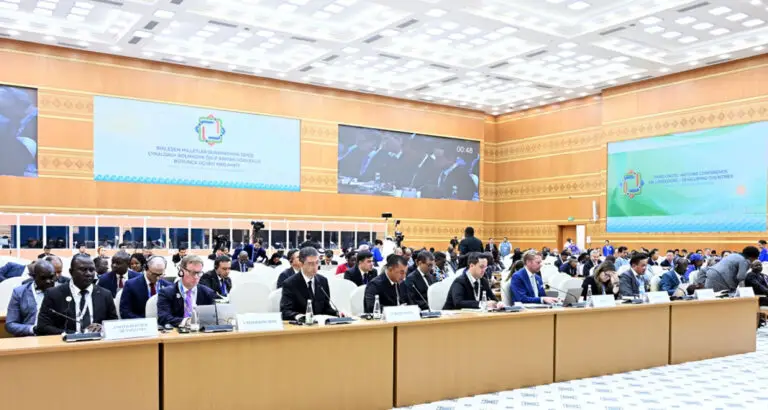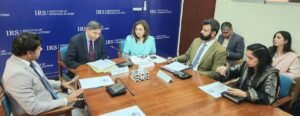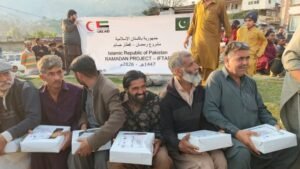
Avaza : The Third United Nations Conference on Landlocked Developing Countries continued its work in plenary sessions.
The main topics of discussion on the second day of the Forum were the possibilities of overcoming obstacles to the further socio-economic development of LLDCs due to isolation from world markets.
During the plenary sessions, it was noted that the Conference is an important stage in promoting a global dialogue on equal opportunities. With the main emphasis on the problems faced by landlocked developing countries, speakers from the Forum member states acquainted the audience with national priorities and positions in solving pressing problems.
At the same time, the importance of further expanding cooperation with the international community on the issues included in the agenda of the current Conference was noted. Noting that the modernization of transport infrastructure, including ports, is one of the key issues for LLDCs, the speakers focused on the need to prioritize environmental well-being in this process.
In connection with the transition to a new ten-year program, the need to consolidate efforts at both the global and regional levels in the field of transport was emphasized. Speaking about the importance of the Avaza Action Program, the speakers agreed that its practical implementation will be a significant contribution to ensuring the stable development of LLDCs.
At the same time, the need to increase international cooperation and the widespread use of innovative approaches to resolving the difficulties faced by LLDCs was emphasized.
According to the Forum participants, attracting investment in various segments of the LLDCs’ economy, including logistics, infrastructure and ensuring freedom of transit, will allow for a positive practical solution to existing issues.
The speakers confirmed the countries’ readiness to support the Avaza Action Plan and, taking into account the interests of LLDCs, to join in the joint efforts of the world community to strengthen multilateral cooperation to achieve the goals set. As noted at the plenary sessions, the Avaza Action Plan for the next ten years includes measures to be taken at the national level, efforts to develop regional partnerships and a global strategy aimed at promoting landlocked developing countries along the path of sustainable development. It, as emphasized, is intended to become a future-oriented Roadmap for transforming vulnerabilities into opportunities for residents of landlocked countries.







